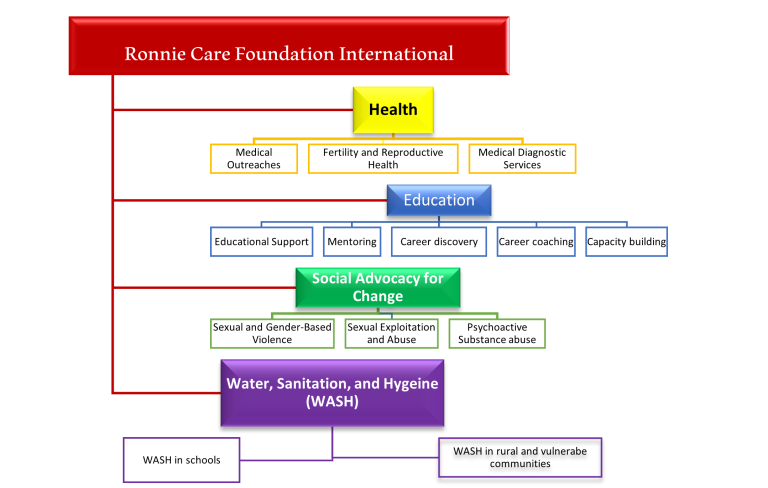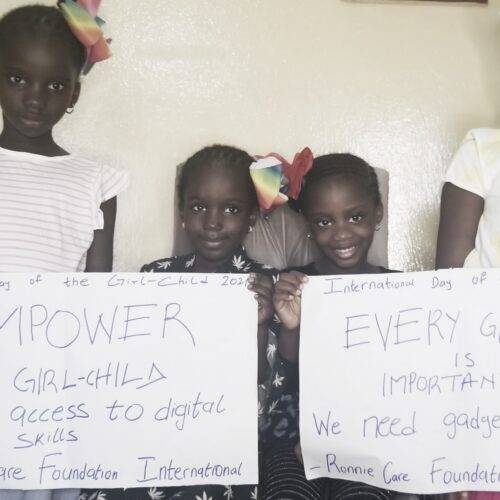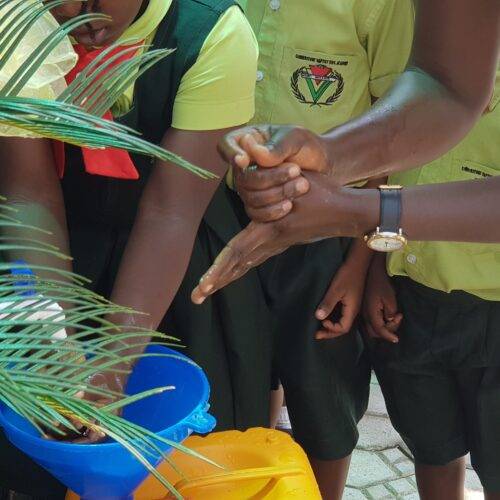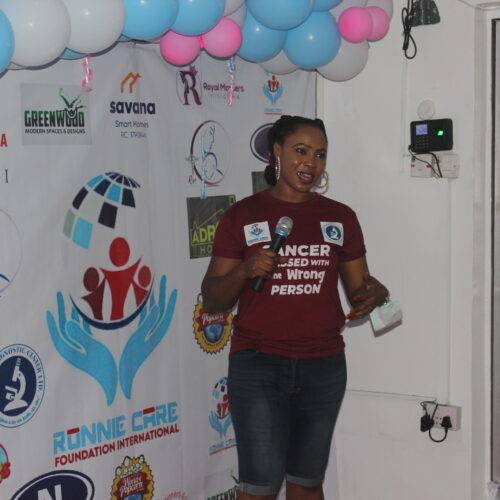Our Work
The problem
We believe the issues facing women and girls in our community are multi-factorial. We identify an endemic lack of access to education and adequate healthcare compounded by peculiar social beliefs and norms. There also exists under-representation in critical decision-making circles. Lastly, women in our community face a significant predisposition to multi-faceted discrimination that partly explains a long history of violence against women and girls in Africa.
However, we get a more precise and accurate picture when we zoom out and appraise the concepts, traditions, and beliefs at the core of the challenges faced by African women and girls. To this end, we identify general social programming that relegates women and girls to a sub-human social class in society. This discrimination leads to a restriction of spaces in which they can operate, institutional limitation of access to quality education, healthcare, and a lack of commensurate compensation for their roles in society. In addition, structural deficiencies reinforced by the dysfunctional social programming predispose women and girls to violence and denies them justice.
Our Approach
RCF is concerned with empowering women based on international best standards in line with the fundamental human rights enshrined in The African Charter. The aim is to culminate in the self-sufficiency and agency of women in Nigeria.
To address the critical under-representation and gender injustice facing African women and girls, we commit to a holistic reorientation of stakeholders and a change in the perception of women’s roles in society-building. They are elevated, given a voice and given an audience in our contemporary society.
Our Core Initiatives

-
SOCIAL ADVOCACY
RCF involves itself in activities that aim to see vulnerable populations penetrate spaces where critical political and economic decisions are made. We aim to improve the representation and participation of women in policymaking. We organize advocacy visits to under-served communities. During these visits, we establish a relationship with the vulnerable members of their communities, allow them to express their views and concerns, contribute to policies that affect them and promote their rights. We also initiate connections with focal persons in communities who make up our monitoring and feedback mechanism. We continually build a network of stakeholders who share our vision and actively contribute to its attainment.
-
EDUCATION
There is a need to revitalize the educational systems, provide more inclusive and equitable access and coverage. We offer access to free, safe, and quality education and provide adult education opportunities to older adults who want another shot at formal education.
-
- Sponsorship: We provide needs-based back-to-school support for children from financially challenged families and communities.
- Mentorship: We have established a mentorship program that engages girls in thought-provoking discussions, aims at challenging the status quo and helps them find purpose. The Mentorship structure comprises focus-group discussions and one-on-one interactive sessions aimed at strategically reorienting them on the need to overcome detrimental social stereotypes projected on them.
-
ACCESS TO HEALTH
We have health programs tailored towards equitable access to affordable reproductive/sexual health services and information.
Our programs address Family Planning, subsidized STIs checks, Fertility workups and mobile medical services.
We also actively encourage and facilitate ownership, responsibility, and accountability of our health programs. Our Plans and actions extend to the community level, with the supervision of Health facilities and collaborations with primary health facilities to ensure continuity and sustainability.
-
WATER, SANITATION, AND HYGEINE (WASH)
With a view to effecting holistic change in health promotion and establishment of health promotion and disease preventing behaviours in our target population, our WASH initiatives are tailored to providing vulnerable communities with access to clean and potable water, sanitation equipment, and infrastructure for the maintenance of a hygienic environment.
Our Events
Our International Day of the Girl Child observance
Our Global Hand Washing Day observance
Our Breast Cancer Awareness Cocktail
Connection between PTSD alcohol blackout and mental health.
Head Office: Suite GF16 (Ground Floor), Anafara Plaza, Gwarimpa First Avenue, Abuja, Nigeria.
E-mail: ronniecarefoundation.int@gmail.com
Whatsapp: +2349163513564
Phone: +2349163513564



